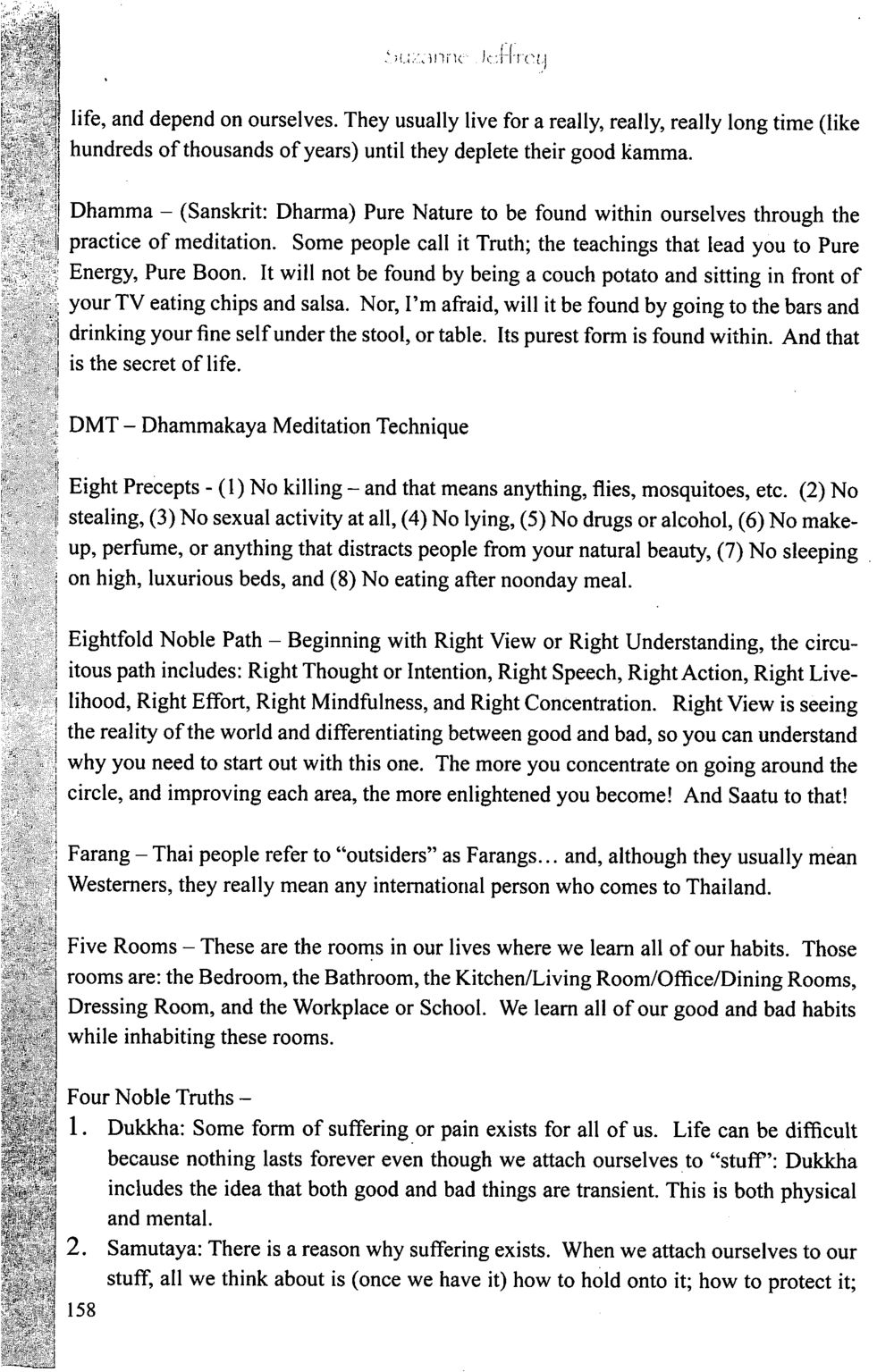Understanding Dhamma and the Eightfold Noble Path : หน้า 157/164
The Meeting with a Dhamma Master : หน้า 157/164 Explore the essence of Dhamma and the Eightfold Noble Path, emphasizing meditation and self-awareness for a meaningful life.
1 ครั้ง

สรุปเนื้อหา
The text discusses the concepts of Dhamma, meditation, and the Eightfold Noble Path as essential elements leading to true understanding and happiness. It emphasizes that true nature and enlightenment come from within, not from vices or distractions. Additionally, it outlines the Eight Precepts guiding ethical living, and introduces the Four Noble Truths which address the nature of suffering and the transient nature of life. Understanding these teachings aids in developing better habits across different aspects of life, ultimately leading to enlightenment. For more information, visit dmc.tv.
หัวข้อประเด็น
-Dhamma and its significance
-Eightfold Noble Path details
-The role of meditation
-Eight Precepts explanation
-Four Noble Truths context
ข้อความต้นฉบับในหน้า
Sucone Jeffray
life, and depend on ourselves. They usually live for a really, really, really long time (like hundreds of thousands of years) until they deplete their good kamma.
Dhamma – (Sanskrit: Dharma) Pure Nature to be found within ourselves through the practice of meditation. Some people call it Truth; the teachings that lead you to Pure Energy, Pure Boon. It will not be found by being a couch potato and sitting in front of your TV eating chips and salsa. Nor, I’m afraid, will it be found by going to the bars and drinking your fine self under the stool, or table. Its purest form is found within. And that is the secret of life.
DMT – Dhammakaya Meditation Technique
Eight Precepts - (1) No killing – and that means anything, flies, mosquitoes, etc. (2) No stealing, (3) No sexual activity at all, (4) No lying, (5) No drugs or alcohol, (6) No makeup, perfume, or anything that distracts people from your natural beauty, (7) No sleeping on high, luxurious beds, and (8) No eating after noonday meal.
Eightfold Noble Path – Beginning with Right View or Right Understanding, the circuitous path includes: Right Thought or Intention, Right Speech, Right Action, Right Livelihood, Right Effort, Right Mindfulness, and Right Concentration. Right View is seeing the reality of the world and differentiating between good and bad, so you can understand why you need to start out with this one. The more you concentrate on going around the circle, and improving each area, the more enlightened you become! And Saatu to that!
Farang – Thai people refer to “outsiders” as Farangs… and, although they usually mean Westerners, they really mean any international person who comes to Thailand.
Five Rooms – These are the rooms in our lives where we learn all of our habits. Those rooms are: the Bedroom, the Bathroom, the Kitchen/Living Room/Office/Dining Rooms, Dressing Room, and the Workplace or School. We learn all of our good and bad habits while inhabiting these rooms.
Four Noble Truths –
1. Dukkha: Some form of suffering or pain exists for all of us. Life can be difficult because nothing lasts forever even though we attach ourselves to “stuff”: Dukkha includes the idea that both good and bad things are transient. This is both physical and mental.
2. Samutaya: There is a reason why suffering exists. When we attach ourselves to our stuff, all we think about is (once we have it) how to hold onto it; how to protect it;
หน้าหนังสือทั้งหมด

1

2

3

4

5

6

7

8

9

10

11

12

13

14

15

16

17

18

19

20

21

22

23

24

25

26

27

28

29

30

31

32

33

34

35

36

37

38

39

40

41

42

43

44

45

46

47

48

49

50

51

52

53

54

55

56

57

58

59

60

61

62

63

64

65

66

67

68

69

70

71

72

73

74

75

76

77

78

79

80

81

82

83

84

85

86

87

88

89

90

91

92

93

94

95

96

97

98

99

100

101

102

103

104

105

106

107

108

109

110

111

112

113

114

115

116

117

118

119

120

121

122

123

124

125

126

127

128

129

130

131

132

133

134

135

136

137

138

139

140

141

142

143

144

145

146

147

148

149

150

151

152

153

154

155

156

157

158

159

160

161

162

163

164
หนังสือที่เกี่ยวข้อง
Load More
